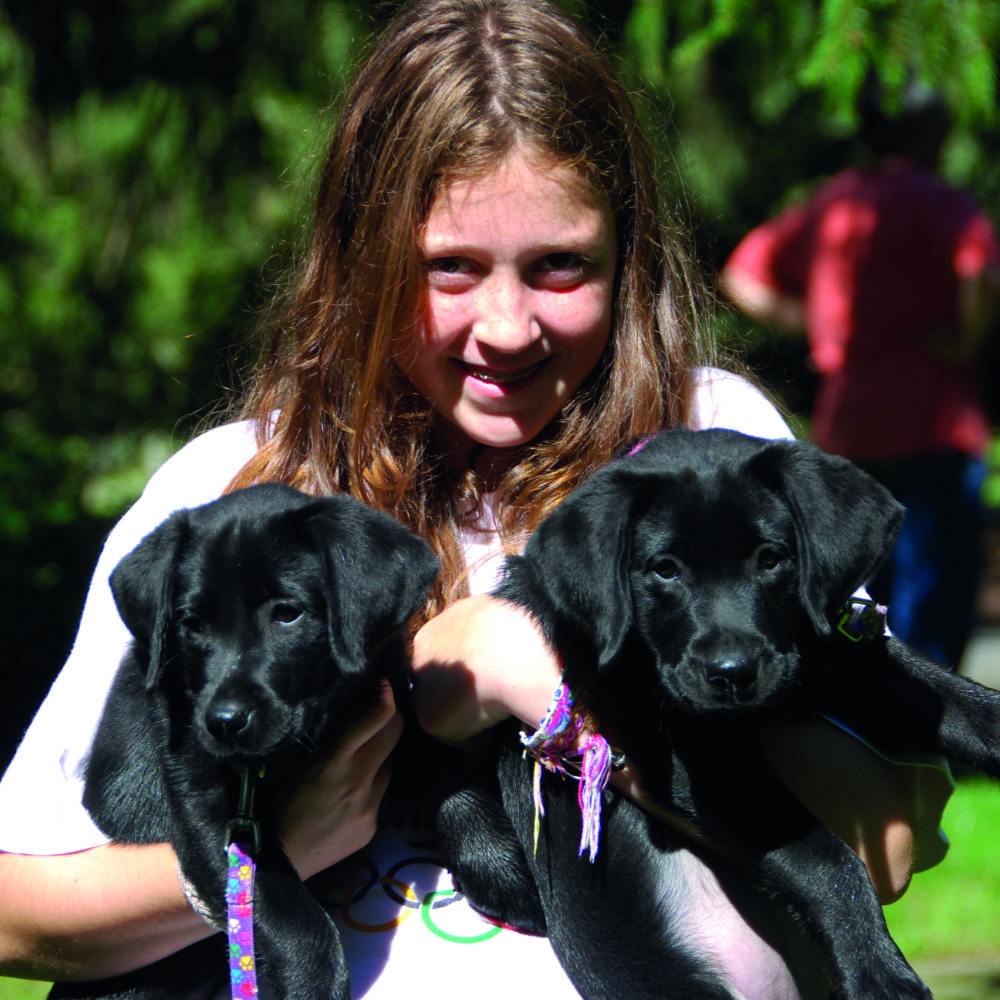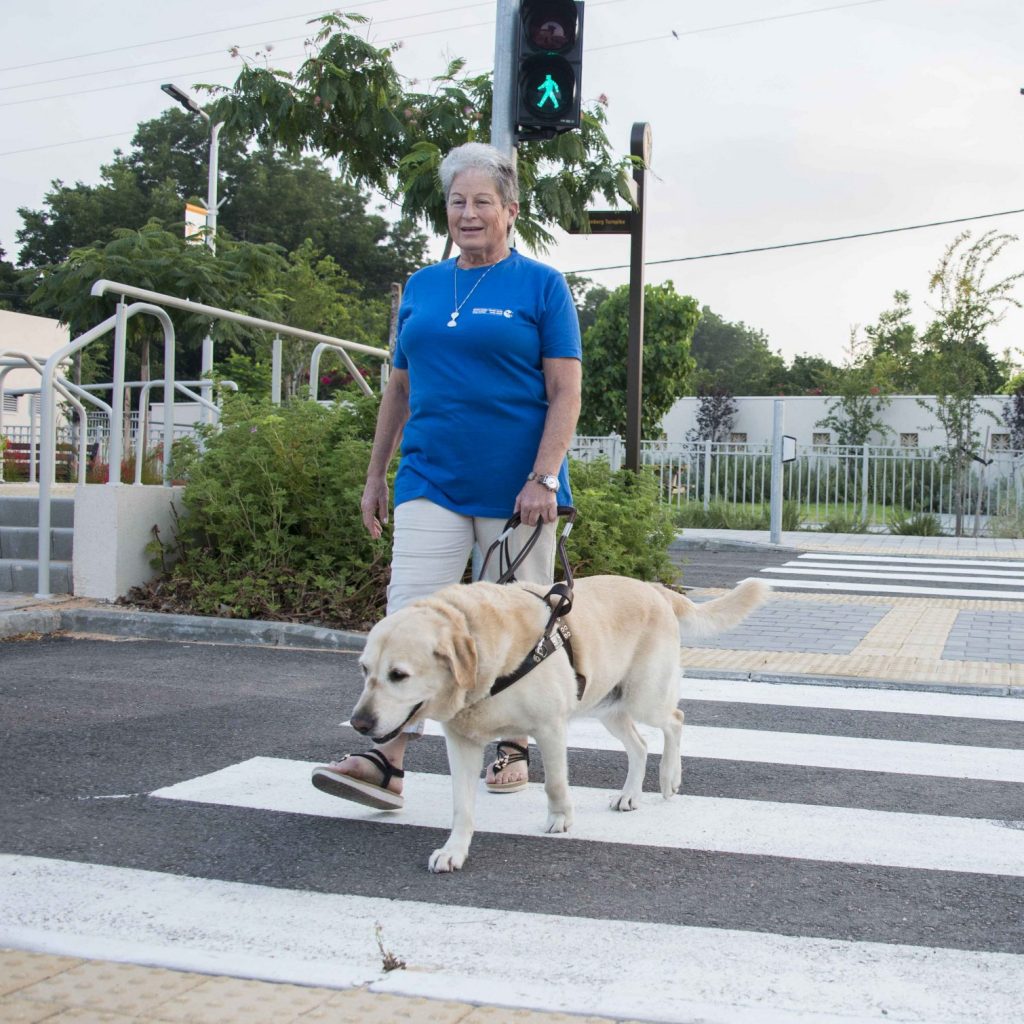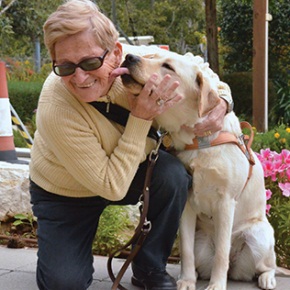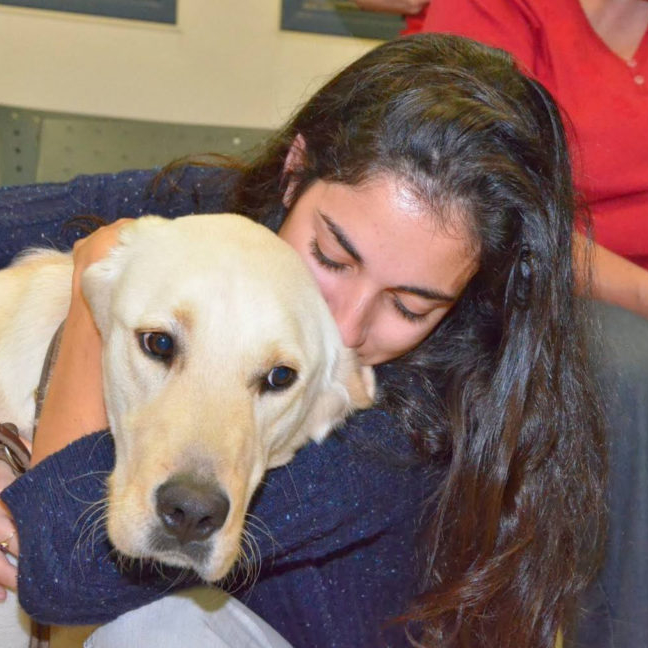A guide dog works with the blind or partially sighted person and that is why we call it a partnership. The ‘partnership’ help each other to navigate through the day.
Throughout training a guide dog is taught to:
- Walk in a straight line along the pavement whilst avoiding obstacles on the route.
- Not turn corners unless told to do so.
- Stop at kerbs and steps.
- Find doors, crossings and places which are visited regularly.
- Judge height and width so that their ‘partner’ does not bump their head or shoulder.
- Help keep you straight when crossing a road – but it is up to you to decide where and when to cross safely.
Breeding Our Top Dogs
We carefully screen our dogs to find the best behavioural traits and genetic matches to create long-lasting partnerships. We primarily use Labradors, Golden Retrievers and crosses between the two, but occasionally also use German Shepherds.
The First Eight Weeks
The puppies stay in our kennels for eight weeks until weaned from their mothers. While with us they are exposed to a variety of experiences, sounds, and textures. We also introduce them to cats and other animals so they will be less curious and hopefully won’t want to chase them later.

Volunteers: Our Puppy Academy
Puppy raising is our most popular volunteer programme. Most of our puppy raisers are university students on-campus, and they take the puppies everywhere, even to class.
They use praise and positive reinforcement to teach the puppies left from right, and right from wrong – and guide dog basics, such as to always walk on the left of their handler and never take food from anyone other than their handler. Our Puppy Managers visit each puppy once a month to evaluate them, offer guidance, and give volunteers new instructions. The volunteers raise the puppies with lots of love and affection – preparing them to bond with their future partners.
Evaluation: Choosing Our Dogs’ Careers
At 12–14 months, the puppies return to our Centre for evaluation. About half of the dogs will meet our very exacting standards for behaviour and temperament and move on to advanced Guide Dog training. Dogs that are not selected, “change careers” and are placed in our Service Dogs Programme where they will be assessed to become either a PTSD Service dog or an Emotional Support dog.

Training: Giving Our Dogs a Hebrew Education
Formal harness training takes from four to six months. During this time dogs are taught many important skills, but the three most important ones are:
- “Intelligent Disobedience” or to disobey a command that will place their partner in jeopardy
- How to judge the height and width of their partner when walking near obstacles
- Problem solving
We use the “Clicker Method” of training which utilises positive reinforcement to teach desired behaviours. Our puppies are born, raised and trained in Israel so they become familiar with the special challenges they will face as guides in Israel – including security barriers and sirens.
Making the Perfect Match
After the dogs are trained, we match them with a person on our waiting list – according to their personalities and individual needs. Our clients come to the Centre for a test-walk, but we often find that the dog chooses its own partner. After we create the perfect match, our client and the dog train together for three weeks at the Centre, and we provide an additional week of specialised training in our client’s home environment. Dogs typically work for eight years before retiring.


Retirement: Leading the Good Life
When our dogs turn ten years old, it is time for their well-earned retirement, and we provide our clients with replacement guide dogs. It is up to the client to decide where the retired dog will go. They can keep the retired dog and the new guide dog in their home or give the retired dog to a friend or relative. Or, they can return the retired dog to us, and we place them with their original puppy raiser. We also have a long list of people who want a retired dog as a pet. The bottom line: all our dogs go to loving homes where they live out their lives in peace and comfort.
Sponsor a Guide Dog: Give a Blind Israeli a New Leash on Life
The cost to Sponsor a Guide Dog Partnership is approximately £40,000. Our clients pay nothing because of the generosity of people from all around the world who want to help. To learn more about sponsoring all or part of a partnership, you can give us a call on 020 8090 3455 or email us at info@israelguidedog.org.uk